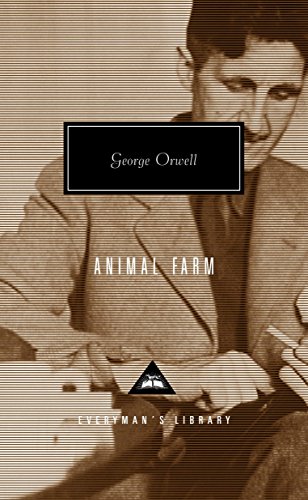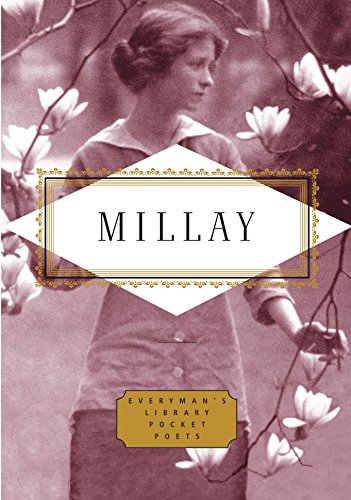-
Childhood, Boyhood, and Youth
Leo Tolstoy
Hardcover (Everyman's Library, Oct. 15, 1991)Leo Tolstoy’s earliest published work, the trilogy Childhood, Boyhood, and Youth, was written when he was in his twenties, offering a tantalizing first glimpse of the literary talents that would come to fruition in his later masterpieces. Chronicling the experiences of a wealthy landowner’s son as he grows up and becomes aware of the world and his place in it, these three short novels were only loosely inspired by Tolstoy’s own memories. In old age he condemned the work as “an awkward mixture of fact and fiction,” but the imaginative powers that enabled him to capture so vividly the universal emotions and sensations of childhood have enthralled generations of readers. We are blessed to have, alongside the mature writer of Anna Karenina and War and Peace and the revolutionary mystic of the later years, the young Tolstoy who wrote these elegiac tales. In their sensitivity to nature and their evocations of fugitive feelings, they reveal his genius in all its untroubled early splendor.
-
The Awkward Age
Henry James, Cynthia Ozick
Hardcover (Everyman's Library, May 25, 1993)Henry James had arrived at such mastery of the forms and uses of fiction by the time he published The Awkward Age in 1899 that this story of a young girl introduced into a casually corrupt circle of sophisticates is at once a universal drama of innocence confronting evil, a detailed examination of a social order, and a stunning picture of a civilization in crisis. On the verge of what was to be his greatest period of creativity, James produced, in The Awkward Age, one of the finest, most rounded, and, in some ways, most intimate and revealing of his long string of masterpieces.Introduction by Cynthia Ozick
-
Animal Farm
George Orwell, Julian Symons
Hardcover (Everyman's Library, May 25, 1993)One of Time magazine's 100 best English-language novels and the most famous of all twentieth-century political allegories. This account of a group of barnyard animals who revolt against their vicious human master, only to submit to a tyranny erected by their own kind, is a universal drama. Taking as his starting point the betrayed promise of the Russian Revolution, Orwell lays out a vision that, in its bitter wisdom, gives us the clearest understanding we possess of the possible consequences of our social and political acts. Orwell is one of the very few modern satirists comparable to Jonathan Swift in power, artistry, and moral authority; in Animal Farm his spare prose and the logic of his dark comedy brilliantly highlight his stark message.“A wise, compassionate, and illuminating fable for our times.” – New York Times“Remains our great satire on the darker face of modern history.” – Malcolm Bradbury“Orwell’s satire here is amply broad, cleverly conceived, and delightfully written.” – San Francisco Chronicle
-
Millay: Poems
Edna St. Vincent Millay, Diana Secker Tesdell
Hardcover (Everyman's Library, March 2, 2010)One of America’s most beloved poets, Edna St. Vincent Millay burst onto the literary scene at a very young age and won the Pulitzer Prize for Poetry in 1923. Her passionate lyrics and superbly crafted sonnets have thrilled generations of readers long after the notoriously bohemian lifestyle she led in Greenwich Village in the 1920s ceased to shock them. Millay’s refreshing frankness and cynicism and her ardent appetite for life still burn brightly on the page more than half a century after her death.This volume includes the early poems that many consider her best— “Renascence” and “The Ballad of the Harp Weaver” among them—as well as such often-memorized favorites as “What lips my lips have kissed” and “First Fig” (“My candle burns at both ends . . .”). The poet’s most famous verse drama, the one-act antiwar fable Aria da Capo, is included here as well.
-
Poems of New York
Elizabeth Schmidt
Hardcover (Everyman's Library, Aug. 13, 2002)New York City has always been a larger-than-life, half-mythical place, and this collection offers an appropriately stunning mosaic of its many incarnations in poetry–ranging from Walt Whitman’s exuberant celebrations to contemporary poets’ moving responses to the September 11 attack on the city. All the icons of this greatest of cities swirl and flash through these pages: taxis and subways, bridges and skyscrapers, ghettos and roof gardens and fire escapes, from the South Bronx to Coney Island to Broadway to Central Park, and from Langston Hughes’s Harlem to James Merrill’s Upper East Side. Wallace Stevens, e. e. cummings, W. H. Auden, Dorothy Parker, Elizabeth Bishop, Allen Ginsberg, and Audre Lorde are just a few of the poets gathered here, alongside a host of new young voices. Encompassing as many moods, characters, and scenes as this multifaceted, ever-changing metropolis has to offer, Poems of New York will be treasured by literary lovers of New York everywhere.
-
Kim
Rudyard Kipling, John Bayley
Hardcover (Everyman's Library, March 21, 1995)Rudyard Kipling’s Kim is the tale of an Irish orphan raised as an Indian vagabond on the rough streets of colonial Lahore. Young Kimball O’Hara’s coming of age takes place in a world of high adventure, mystic quests, and secret games of espionage played out between the Russians and the British in the mountain passages of Asia. Kim is torn between his allegiance to the ascetic lama who becomes his beloved mentor and the temptations of those who want to recruit him as a spy in the “great game” of imperial conflict. In a series of thrilling escapades, he crisscrosses India on missions both spiritual and military before the two forces in his life converge in a dramatic climax in the high Himalayas. Published in 1901, after its author had permanently moved away from India, Kipling’s masterpiece is marked by a maturity of perspective on the land of his birth, combined with breathtakingly brilliant descriptions of the fascinating lost world of the British Raj. Kim has enthralled generations of readers both by the exuberance of its storytelling and its vital and unforgettable portrait of the India of bazaars and sacred rivers, holy men and rogues, ancient customs and colonial society.
-
Daniel Deronda
George Eliot, A. S. Byatt
Hardcover (Everyman's Library, Sept. 19, 2000)George Eliot’s last and most unconventional novel is considered by many to be her greatest. First published in 1876, Daniel Deronda is a richly imagined epic with a mysterious hero at its heart.Daniel Deronda, a high-minded young man searching for his path in life, finds himself drawn by a series of dramatic encounters into two contrasting worlds: the English country-house life of Gwendolen Harleth, a high-spirited beauty trapped in an oppressive marriage to a wealthy man, and the very different life of a poor Jewish girl, Mirah, who is searching for her family. After rescuing Mirah from an attempt to drown herself in the Thames, Deronda accompanies her on her quest into London’s Jewish community, which he finds unexpectedly appealing. Gwendolen, meanwhile, increasingly relies on his support as she suffers from the consequences of her mistakes and the terror that she has brought a curse upon herself. As Deronda uncovers the surprising secret of his own parentage, Eliot’s moving and suspenseful narrative opens up a world of Jewish experience previously unknown to the Victorian novel.
-
Madame Bovary: Patterns of Provincial Life
Gustave Flaubert, Francis Steegmuller, Victor Brombert
Hardcover (Everyman's Library, Feb. 23, 1993)Emma, a passionate dreamer raised in the French countryside, is ready for her life to take off when she marries the decent, dull Dr. Charles Bovary. Marriage, however, fails to live up to her expectations, which are fueled by sentimental novels, and she turns disastrously to love affairs. The story of Emma’s adultery scandalized France when Madame Bovary was first published. Today, the heartbreaking story of Emma’s financial ruin remains just as compelling.In Madame Bovary, his story of a shallow, deluded, unfaithful, but consistently compelling woman living in the provinces of nineteenth-century France, Gustave Flaubert invented not only the modern novel but also a modern attitude toward human character and human experience that remains with us to this day. One of the rare works of art that it would be fair to call perfect, Madame Bovary has had an incalculable influence on the literary culture that followed it. This translation, by Francis Steegmuller, is acknowledged by common consensus as the definitive English rendition of Flaubert’s text.
-
Doctor Zhivago
Boris Pasternak, Max Hayward, Manya Harari, John Bayley
Hardcover (Everyman's Library, Nov. 26, 1991)In the grand tradition of the epic novel, Boris Pasternak’s masterpiece brings to life the drama and immensity of the Russian Revolution through the story of the gifted physician-poet, Zhivago; the revolutionary, Strelnikov; and Lara, the passionate woman they both love. Caught up in the great events of politics and war that eventually destroy him and millions of others, Zhivago clings to the private world of family life and love, embodied especially in the magical Lara. First published in Italy in 1957, Doctor Zhivago was not allowed to appear in the Soviet Union until 1987, twenty-seven years after the author’s death. Translated by Manya Harari and Max Hayward
-
The Wealth of Nations
Adam Smith, D. D. Raphael, John Bayley
Hardcover (Everyman's Library, Oct. 15, 1991)Published in 1776, in the same year as the Declaration of Independence, The Wealth of Nations has had an equally great impact on the course of modern history. Adam Smith’s celebrated defense of free market economies was written with such expressive power and clarity that the first edition sold out in six months. While its most remarkable and enduring innovation was to see the whole of economic life as a unified system, it is notable also as one of the Enlightenment’s most eloquent testaments to the sanctity of the individual in his relation to the state.
-
The Iliad
Homer, Robert Fitzgerald
Hardcover (Everyman's Library, March 10, 1992)In every century since the renaissance, English speakers have felt compelled to possess a translation written especially for their own time of this great epic poem, the earliest and most central literary text of Western culture. That need has been thoroughly met in our century by the distinguished poet and classicist Robert Fitzgerald, whose version of The Iliad does justice in every way to the fluent vigor and gravity of the Homeric original.
-
Walden
Henry David Thoreau, Verlyn Klinkenborg
Hardcover (Everyman's Library, Jan. 11, 1993)By virtue of its casual, off-handedly brilliant wisdom and the easy splendor of its nature writing, Thoreau’s account of his adventure in self-reliance on the shores of a pond in Massachusetts is one of the signposts by which the modern mind has located itself in an increasingly bewildering world. Deeply sane, invigorating in its awareness of humanity’s place in the moral and natural order, Walden represents the progressive spirit of nineteenth-century America at its eloquent best.